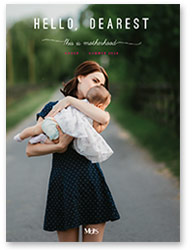Contact Us
Kids get angry like everyone else. Sure, half of the time they get angry over something as arbitrary as wanting to buckle their own seat belt or pour a glass of milk. Sometimes we can help diffuse their anger by letting them do it, but most of us are not going to let our toddler anywhere near a gallon of milk that is literally bigger than their head. The tantrum is inevitable!
There are also times kids feel legitimately wronged and want to communicate their anger (e.g. when another child takes their toy and won’t give it back). Whether arbitrary or reasonable, kids have a right to be angry. Anger is not a bad thing, it is necessary for healthy development. Learning positive ways to diffuse and communicate anger is crucial for kids. Here are a several phrases you can use to help diffuse your child’s anger:
“You’re feeling so angry right now.”
Stating this simple observation aloud helps your child feel validated. He knows you understand what is going on so he doesn’t have to work so hard (by arguing, yelling, etc.) to let you know how mad he is. Now the big emotion enveloping him like a tornado has a name. It’s real! He feels immediately calmer and can gain control of his anger instead of spinning around in it.
“Your heart is beating so fast right now, let’s take some deep breaths so we can talk about what is making you angry.”
Again, with this phrase you have validated the anger. You have also identified how your child’s body is reacting to her anger. Connecting her body and her emotions will help her to be more aware of her feelings. Checking her heart rate forces her to focus on something other than what is making her angry, which slows her heart rate, diffuses anger and increases clarity. Have her put her hand on her heart and count the beats for 30 seconds. Then have her take some deep breaths. Try the 7-4-8 breathing method: breathe in for a count of 7, hold for a count of 4, then breathe out for a count of 8. Once she is calm give her a chance to talk about her feelings.
“I am sorry that happened to you, I would be angry too.”
Sometimes kids just want to know someone else gets it. When my daughter gets mad, she is likely to yell, “You are so mean! I am so mad at you I am never letting you play in my room ever again!” In the moment, I want to tell her it is not OK to act that way. But when someone is mean to me I don’t want to play with them either. What she needs to hear is that I understand. The last time I said something like this to her she crumpled into my arms for a hug, wiped her tears, took a deep breath and went back to playing. Once in a while when she is mad she can stomp her feet if she wants. I get it. You can always talk about behaviors later, she will hear you better when she is calm. Empathy and validation help her to move on from anger faster.
“You are so angry you feel like you want to hit.”
As you may have noticed by now, in every suggestion so far we use the word angry. Naming the feeling aloud is calming. Sometimes anger makes us want to hit and that is OK. (Of course it is not OK to actually do it!) But saying “I’m angry!” reduces the desire to act in anger. If your child still feels like he needs to hit something after saying this, show him what he can do to get out the extra energy. In our house we can hit pillows! You might also try ripping up paper or having your child squeeze Play-Doh (as long as he can keep it in his hands, and not chuck it at someone’s head!). Or maybe doing push-ups or riding his bike to help get the energy out. Talk to him when he is calm and let him come up with some ideas for the next time he is so angry he wants to hit.
“What is going to help your angry feelings right now?”
It is often a goal of us moms to make our kids feel better. We hate to see them struggle. But it’s best to teach them how to help themselves feel better. That means we have to let them be the problem solvers and learn to tell us, or others, what will help them. This also means they may be unhappy for a bit. Letting our kids sit in the struggle of difficult feelings provides them time and space to deal with them. If you ask your child what will help them and they don’t know, or they continue be stuck in their anger, give them a few options (a hug, some space, a book or project to distract, etc.). Once they get some practice they will get the hang of it. Here’s the key: Do not tell them what to do or give them the answer.
Practice is the key to success with these anger-defusing phrases. Try them out and see what helps your child. Remember that modeling is important, so when all else fails, just start doing one of them yourself and see if they join in. Anger is inevitable, important and deserves space to exist. These five phrases will not only help defuse anger in children, but might even help you keep your cool too.
Krissy Dieruf is a licensed marriage and family therapist and has always loved working with kids, especially the ones with crazy hair and a rebellious streak. She often finds herself singing and dancing around the house and tries not to embarrass her three children too much.

This article originally appeared in the Summer 2016 issue of Hello, Dearest. If you didn’t get a copy and would like your own, you can subscribe to get Hello, Dearest in your mailbox every season. If you subscribe, forward your receipt to magazines@mops.org and we’ll shoot a copy of the current issue in the mail to you for free … just because we like you.
